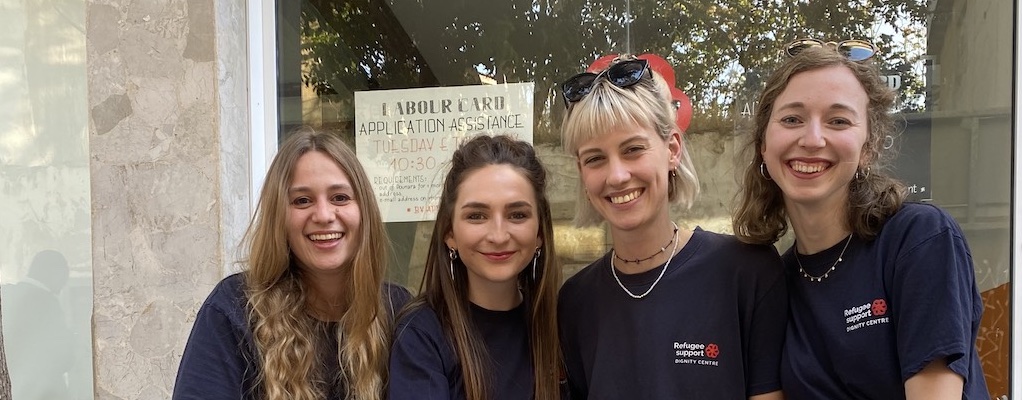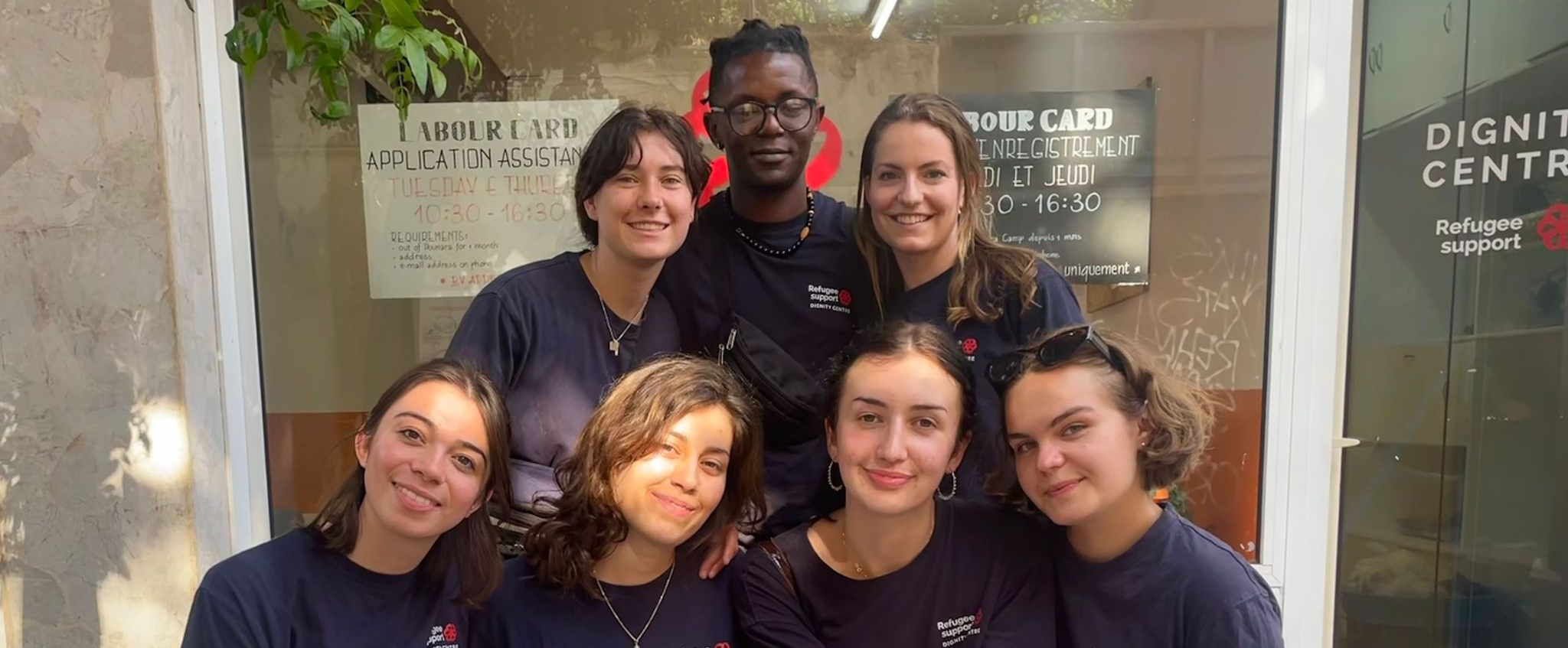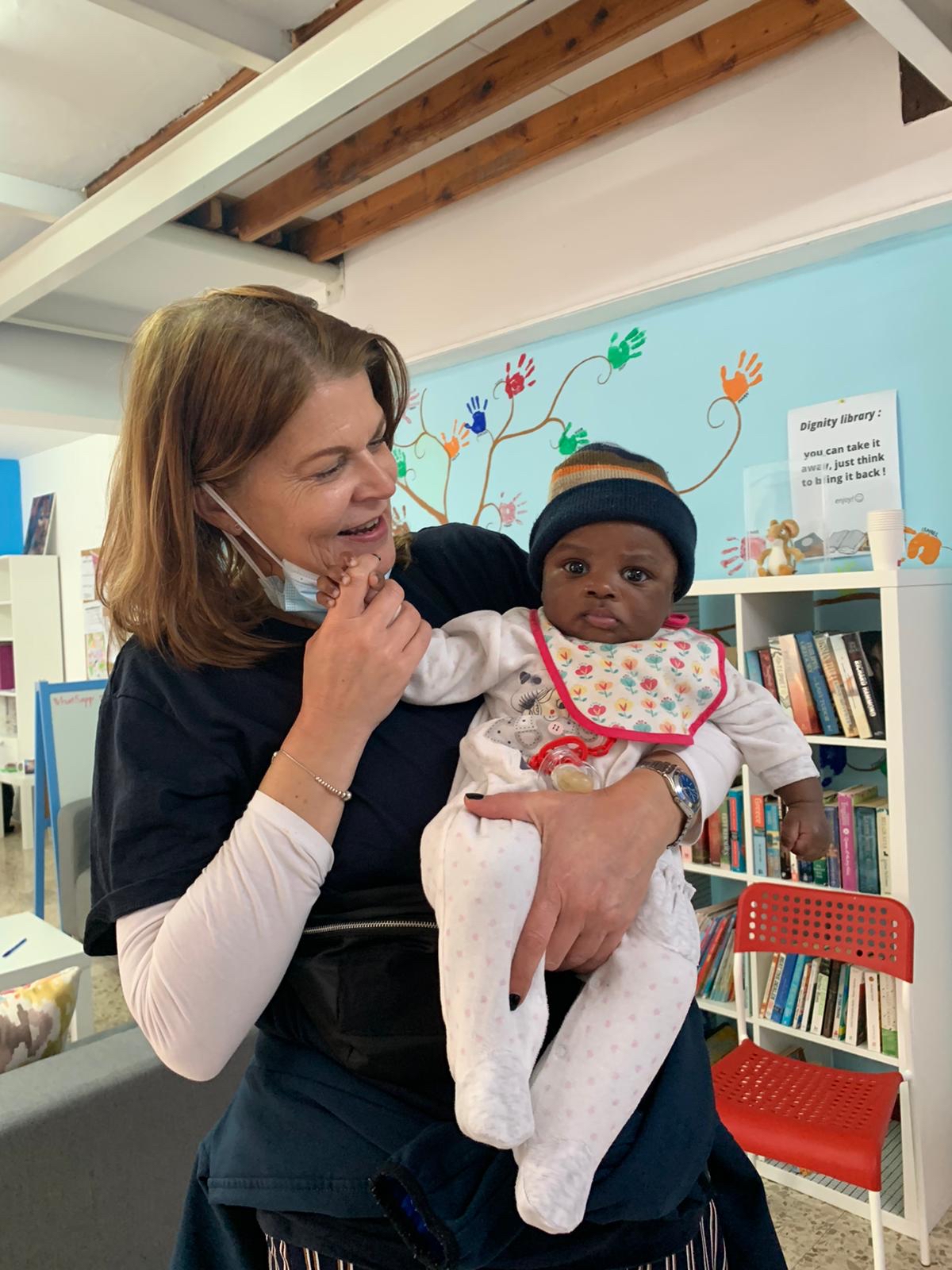When I first arrived in Nicosia, I was quite nervous for what my first day working at the centre was going to be like. Within fifteen minutes of starting in the market, I knew that I was in the right place.
My first impression of what my five weeks at the Nicosia Dignity Centre were to look like came from the coordinator, Hélène, and the rest of the volunteer crew.
Two things stood out to me from the beginning.
- The first is that every person there was completely dedicated to their work and to the people who needed our help. Everyone was there with purpose and with drive to do everything they possibly could.
- The second is that the volunteers had a culture of looking out for one another. Even on the busiest of days, volunteers would give each other words of encouragement, relieve each other for a lunch break, or translate.

As my five weeks progressed, so did my belief in the importance of aid with dignity as an ethos.
For people in the dire situation as those we helped, dignity is absent from most of their interactions. Every day, I would hear stories about how asylum seekers were treated by the asylum office, welfare agencies, other NGOs, hospitals, schools, and businesses.
The role that the centre plays in just giving people a safe space is one that I did not fully appreciate until I got there. It wasn’t uncommon to see people who had taken care of their business to catch up with friends and swap stories.
Everyone needs, and deserves, a place in which they feel safe and respected.
I’m deeply humbled to have gotten the opportunity to serve with an organization that understands this principle to the degree that Refugee Support Europe does.
Halfway through my time, we started assisting people with their CVs, which was my favourite part of volunteering.

Talking to people in the market was one thing, but getting to sit down with somebody one on one allowed me to really get to know the community around the Dignity Centre. It also laid bare the sheer amount of challenges to actually settling in Cyprus.
Every week, I helped people with technical training, teaching experience, and advanced degrees write CVs for jobs as grocery store workers or trash collectors because these are the positions to which they are relegated by the Cypriot government.
My experience can be summed up with the fact that I spent five weeks witnessing everyone doing everything that they could.
My coordinator and fellow volunteers would arrive early, stay late, and work with unwavering levels of dedication and professionalism.
I also saw dedication in the people that we served. I’ll never forget a conversation I had with a man who I was helping with his CV. He said that he knew, because he was an asylum seeker, that he wouldn’t be able to do the same jobs as he had done in Nigeria. But, instead of losing hope, he smiled and said that he was going to figure it out and was grateful for the help.
Again and again, we would see people working through a seemingly endless array of obstacles with the hopes of gaining stability for themselves and their families.
Just as a colleague told me on my first day at the Centre, “People who need help are not the same as people who are helpless.”




